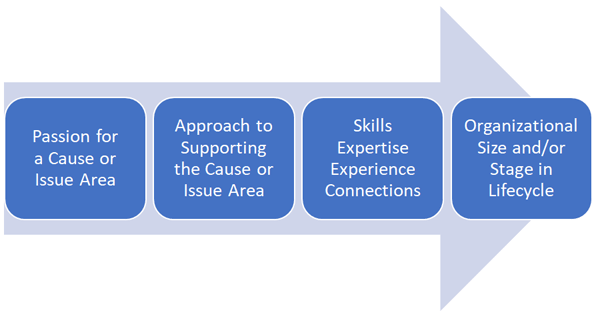I have a clear memory of the moment at which I decided to make an adjustment in my career trajectory. I’d spent the day in a truly awful corporate retreat and felt dejected in its aftermath. A couple of my colleagues and I decided to drown our sorrows in a nearby pub and wound up in a rather far-ranging discussion about work and life. Then one of my colleagues referred to our industry (tech) as the digital holocaust. He acknowledged that it helped corporations run more efficiently and economically; however, automation was responsible for job loss among persons who could least afford to sacrifice their incomes.
Suffice it to say, that characterization hit me like a ton of bricks. On the one hand, I had the training, insight, and experience to recognize the inevitability of cost saving measures to sustain competitive survival in the relentlessly Darwinian corporate environment. On the other hand, I lost my will to play an active part in that milieu. I wanted my efforts to be in service of more lofty ambitions.
I’ve met folks who’ve had a similar conversion experience. Others arrived there as a result of downsizing or early retirement. Some wanted to gain new skills or seek a better work-life balance (though the latter were surprised at the demands placed on resource-strapped social sector workers!) Whatever the motivation, we all face the challenge of finding a new home in a vast sector.
If you’re considering this path, here are a few steps you might take to figure out where you might fit.

ONE: Think about the issues or causes that might ignite your passion. The non-profit sector encompasses Health Services, Education & Research, Social Services, International Aid, Charitable Foundations, Arts & Culture, Religious Organizations, and Fraternal Organizations, to name a few. Most of their employees, funders, members, and interest groups will be deeply committed to the work they do. If you expect to be welcomed warmly, you’ll need to share their enthusiasm.
TWO: Think about which approach to the issue area best suits your skills and interests. Do you see yourself as an advocate or policymaker who wields influence with lawmakers, governmental agencies, foundations, and/or public opinion? Are you interested in working with organizations that provide direct service? Would you like to serve as a consultant and provide capacity building services? Do you enjoy being affiliated with a membership organization? What atmosphere and activities fill you up?
THREE: Identify skills, expertise, experience, and connections that could benefit non-profits. Consider how these assets might be leveraged to address a non-profit’s top capacity building needs:
- Funding, funding, funding: Executive Directors (EDs) face significant (and growing) competition for scarce dollars – especially unrestricted funds.
- Human capital: Every organization faces the challenge of getting the right people in the right roles with systems to manage them successfully. Non-profits face the added hindrance of sub-par market compensation.
- Technology: Non-profits need to build a robust communications and information technology infrastructure on a shoestring budget.
- Impact evaluation: Quantitative and qualitative measurements must be prepared to demonstrate short- and long-term program impact and inform continuous improvement. It’s not just “good for business”; it’s a requirement for sustained funding.
- Fiscal management: Regulatory authorities, funders, strategic partners, and others have placed increased demands on non-profits to shore up their fiscal policies & procedures, budgeting, forecasting, cash flow analysis, risk assessments, financial statement preparation, and audit practices. It’s a daunting task if these disciplines are not established.
- Marketing: Non-profits need a compelling brand identity and messaging to garner public support and position them favorably among their constituents. Otherwise, they risk having their issue area fly below the radar and their stellar performance become a well-kept secret.
FOUR: Figure out what kind of non-profit is right for you. Do you want to work for a start-up? A founder-driven operation? A grass-roots organization? A large institution? Would you prefer a long-established, stable organization? Do you thrive in a growth-oriented operation? Or are you best suited to throw in with an organization in transition that’s seeking a fresh infusion of ideas and energy?
You might be one of those rare individuals who can quickly rip through this list and figure everything out on your own. But, for most of us, it takes a bit of thinking, a bit of dialog with trusted associates, a bit of outside help, and a bit of dipping toes in the water to figure it out. That’s OK! Just start the journey and be open to where it leads.